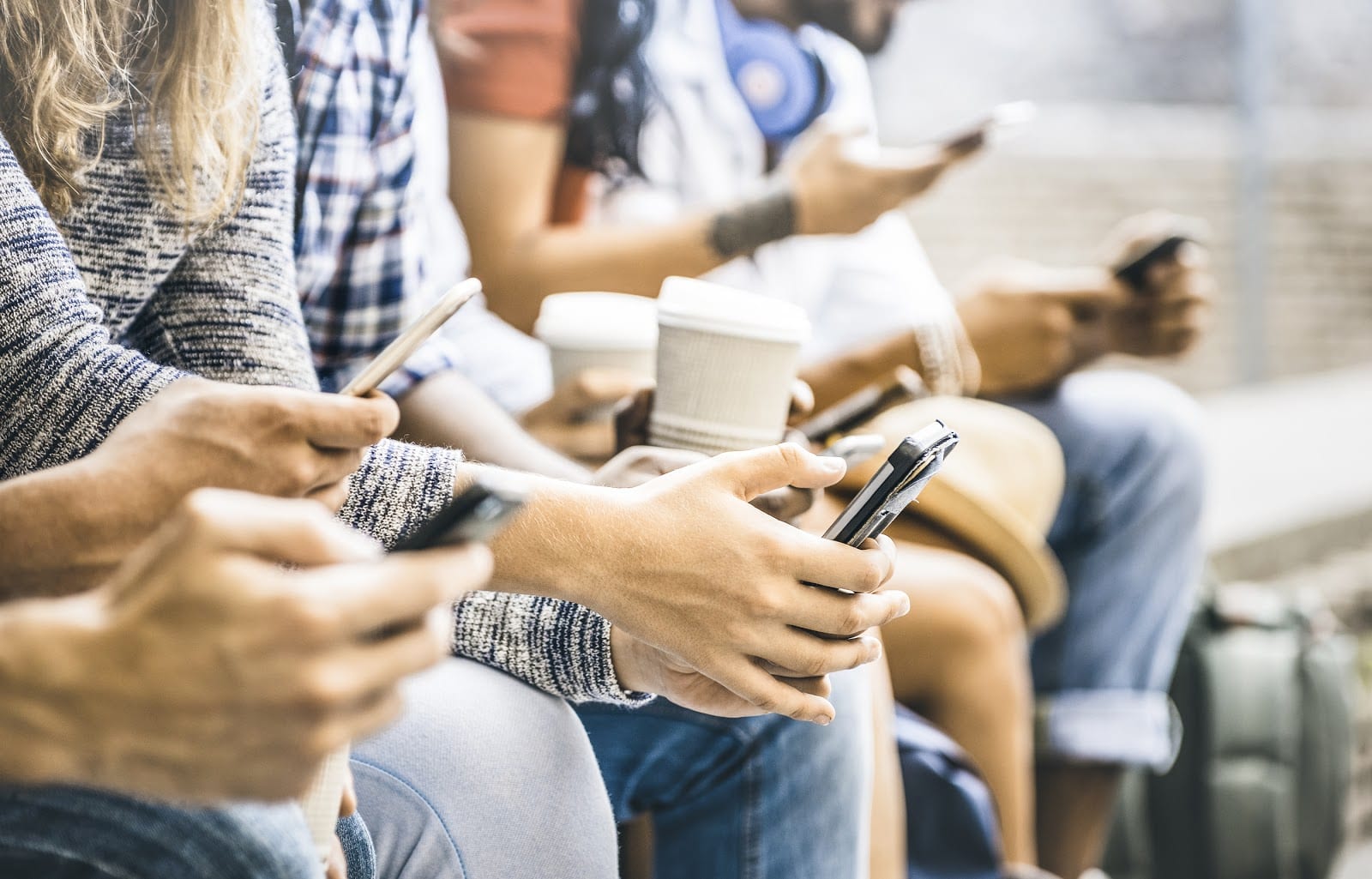There are many benefits to using social media. Many people use it as a means to stay in touch with friends and family who live far away, connect with new people, and preserve their own memories in a public forum. But there are also many disadvantages to using the various platforms.
Several recent studies and news articles have linked excessive social media usage to increased depression and anxiety. When vulnerable users are only seeing the highlight reels of aspirational photos and stories their peers are posting, they can negatively compare their own lives and self image.
It’s important to practice mindfulness when using social platforms to maintain a healthy, productive mindset.
Why is There a Correlation Between Social Media and Depression?
Research has found several possible contributors to the correlation between increased social media usage and an incline in depression rates among teenagers and young adults. According to one study of over half a million eighth through 12th graders, depressive symptoms increased by 33 percent and the suicide rate for girls in that age group increased by 65 percent between 2010 and 2015.
Smartphones were released in 2007, shortly before the study began, and by the year 2015, 92 percent of teens and young adults owned a smartphone. The popularity of social media and increase in usage has shown to have the following negative effects on some which can explain the higher depression rates.
- Cyberbullying — With the invention of the internet, smart phones, and social media, there has also been the introduction of cyber bullying. In recent years, schools have been faced with a rise in cyberbullying. Students are no longer able to escape bullying once they leave school and are now vulnerable to receiving harsh messages from their peers after school hours while they’re home. Those who would not bully someone in school, may even feel more superior behind a screen and not afraid to send mean messages.
- Social Isolation — While social media has made it easier to interact with people further away and strangers you may not have ever met before, it can also reduce face-to-face interaction. Many users that spend excessive time scrolling social media channels will avoid connecting in-person, which depletes the emotionally satisfying element of socializing. Real relationships can be ignored to instead focus on virtual connections.
- Self-Esteem — The beauty industry has always set certain standards when it comes to the appearance of both males and females, but now those same unrealistic standards are even more prominent with social media. Plus, with the accessibility to filters and editing apps, many users can feel self conscience if their bodies do not match the ads on the social accounts they follow. But it’s not only the models and celebrities that show up in their feeds that can cause negative self-esteem. Pictures their friends share of their “perfect” selfies and seemingly problem-free lives can also take its toll on mental health.
- Less Healthy Activity — More screen time can mean disrupted sleep, less physical activity, and unhealthy habits. When you’re not treating your body right, your mind will suffer as well. It’s been proven that using a phone right before bed makes falling asleep more difficult. Don’t let screen time get in the way of treating your body right.
How Can I Reduce the Negative Effects?
Times are changing and many people have social media accounts that they use regularly. There are plenty of advantages to using the sites, but there are also negative mental health effects, such as a risk for depression and anxiety. But there are steps to take that can help reduce the harm without having to delete your accounts all together.
- Set a Limit — It’s all about balance. Setting a daily time limit that you allow yourself to use your accounts will help you break the habit of mindlessly scrolling social media platforms. Before setting the limit, you may not realize how much time you actually spend on your phone and it will surprise you how quickly it adds up.
- Unfollow accounts that make you feel inadequate — You know the accounts we’re talking about. The ones that make you feel bad about yourself or invoke a sense of jealousy. The ones that leave you wishing for a “perfect” life like theirs. Click the unfollow button and find accounts that show more “real-life” images and messages of encouragement.
- Prioritize a healthy lifestyle — Be intentional about adapting healthy habits, such as resisting phone use before bed, getting an adequate amount of outdoor exercise, and eating a well-balanced diet. When you feel well physically and get the appropriate amount of sleep and nutrients, you feel better mentally and emotionally as well.
- Turn off notifications — We’ve all been there, You’re in the middle of something and not even thinking about your phone when a notification chimes, comes across your screen, and pushes you to neglect your current task to check it out. Turn off notifications. When you are ready to go on social media, you will see the material. You’re not missing out. It can wait.
It’s All About Balance.
If you find that it’s difficult to cut back on your social media usage or you are still experiencing symptoms of depression and anxiety even after following the steps listed above, call the TMS Center of the Lehigh Valley. We offer an FDA approved, non-drug, non-invasive depression treatment for patients suffering from depression. Don’t let depression get in the way of enjoying your life.

